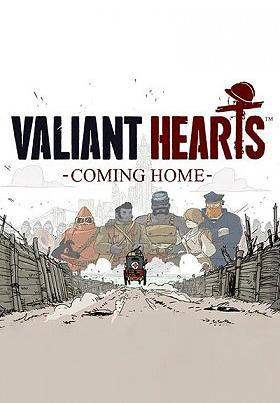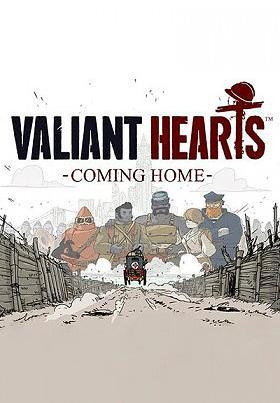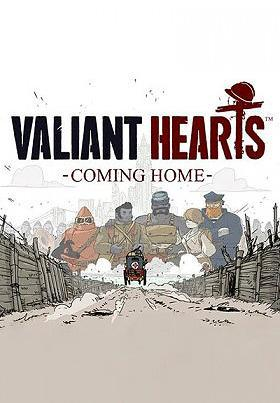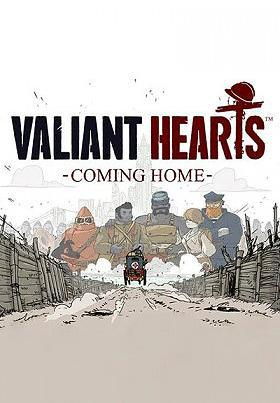
Valiant Hearts: Coming Home (XS) - Review
by Lee Mehr , posted on 07 April 2024 / 2,042 ViewsUbisoft is one of the most fascinating big-budget publishers to me. It's the company whose name is essentially a trademark for your corporatized open-world game for over a decade, while simultaneously spearheading artistically-driven UbiArt titles alongside. Basically like the EA/EA Originals split dating all the way back to the early 2010s. One of the earliest examples was Valiant Hearts: The Great War, a 2D side-scrolling action/puzzle game set during World War I. Now, several years on, Coming Home serves as a fitting finale to the original, but could've taken more of the criticisms of its predecessor to heart.
Like before, this multi-stranded narrative weaves a yarn incorporating characters of disparate nationalities. The cast is comprised of new and returning faces, including Freddie, Anna, and Walt – the Doberman pinscher/medic assistant which captured most of The Great War's marketing attention. The most prominent newbie, James, is actually Freddie's brother. Against Freddie's wishes over avoiding the bloodshed, James enlists and also serves as the audience's perspective character in the venerated Harlem Hellfighters. 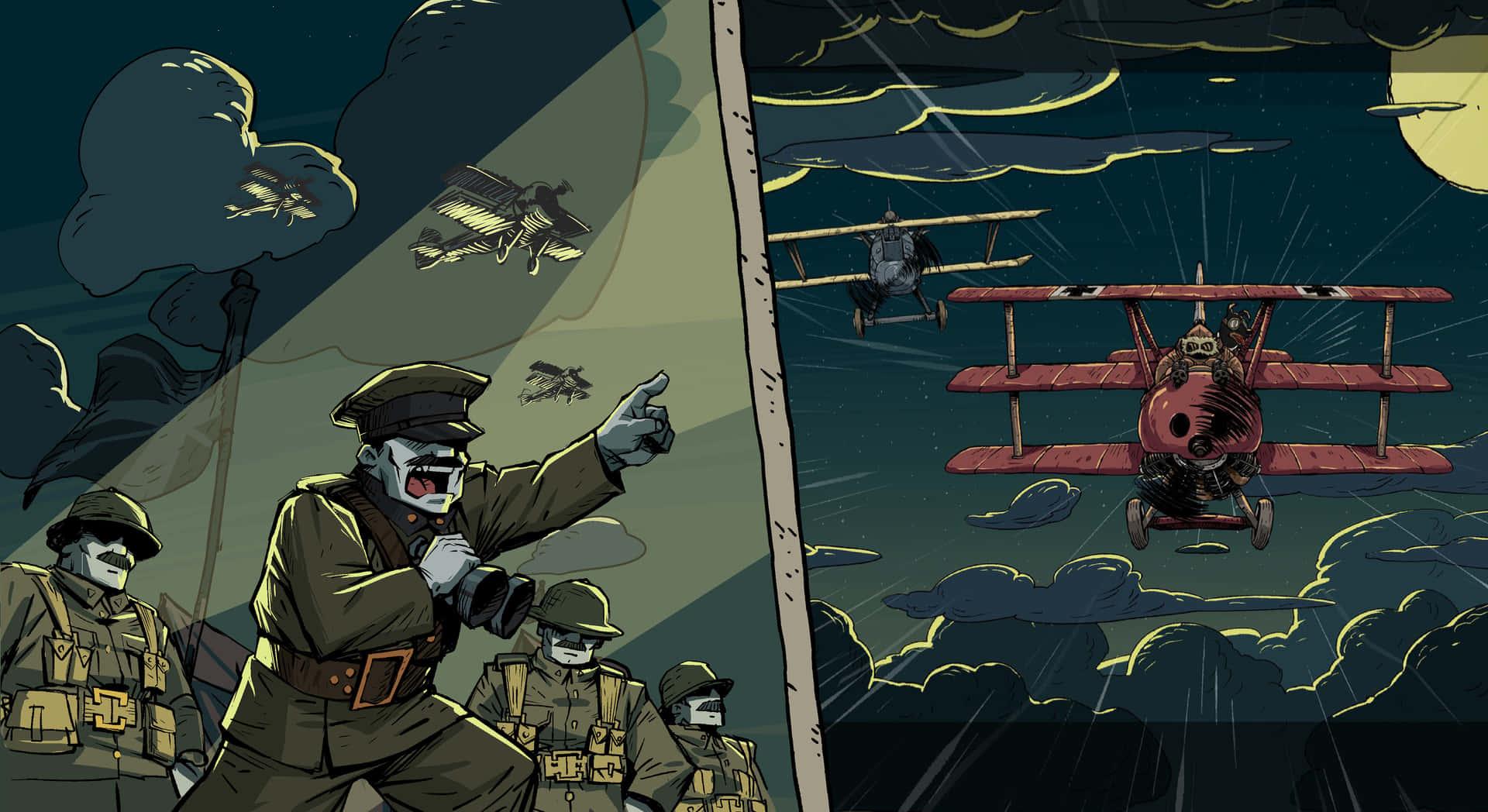
Given its predecessor's track record, what with melding the tragedy of war with cartoon hijinks, you'd be hard-pressed to convince me Coming Home was creatively equipped to explore racism during the war or a German point-of-view character (Ernst). While re-framing the war machine itself as The Big Bad instead of another moustache-twirling villain avoids the past title's ludicrous tonal shifts, Ubisoft Montpellier (Mawn-pel-yay) is still at odds with having a more grounded focus.
It's felt right at the starting gate too: James' surly drill instructors glowering over him as he runs through the racially segregated obstacle course. The narration and various collectibles want to earnestly show entrenched racism against those still willing to give their lives for a greater cause; and yet, the presentation feels wildly inconsistent. The foreground and background show a stark difference between white/colored training regimens, while everyone barks in goofy gibberish and makes silly pantomimes - only made more goofy by stiff animations. Another racist example is just a few white dock workers tossing James' toolbox into the ocean for kicks. I don’t know why, but the exchange between them going "hehehe… smama-do bladdy-bla" while walking away and him saying "aww… clarinet" sounded so goofy.
Try as one might, it's tough to imagine walking the tightrope between self-seriousness and Castle Crashers' personality. As with The Great War, a stronger connection is felt through actual history than action shlock. The edutainment angle with collectibles (a la Never Alone & more) elucidate incredible details about the larger conflict itself, but Coming Home also diminishes its own authority through the fictional tale it weaves. By the nature of its T rating, this war's brutality has to be dampened and the plot's progression over-relies on pure happenstance. It's asking a lot on suspension of disbelief to reach an otherwise meaningful ending.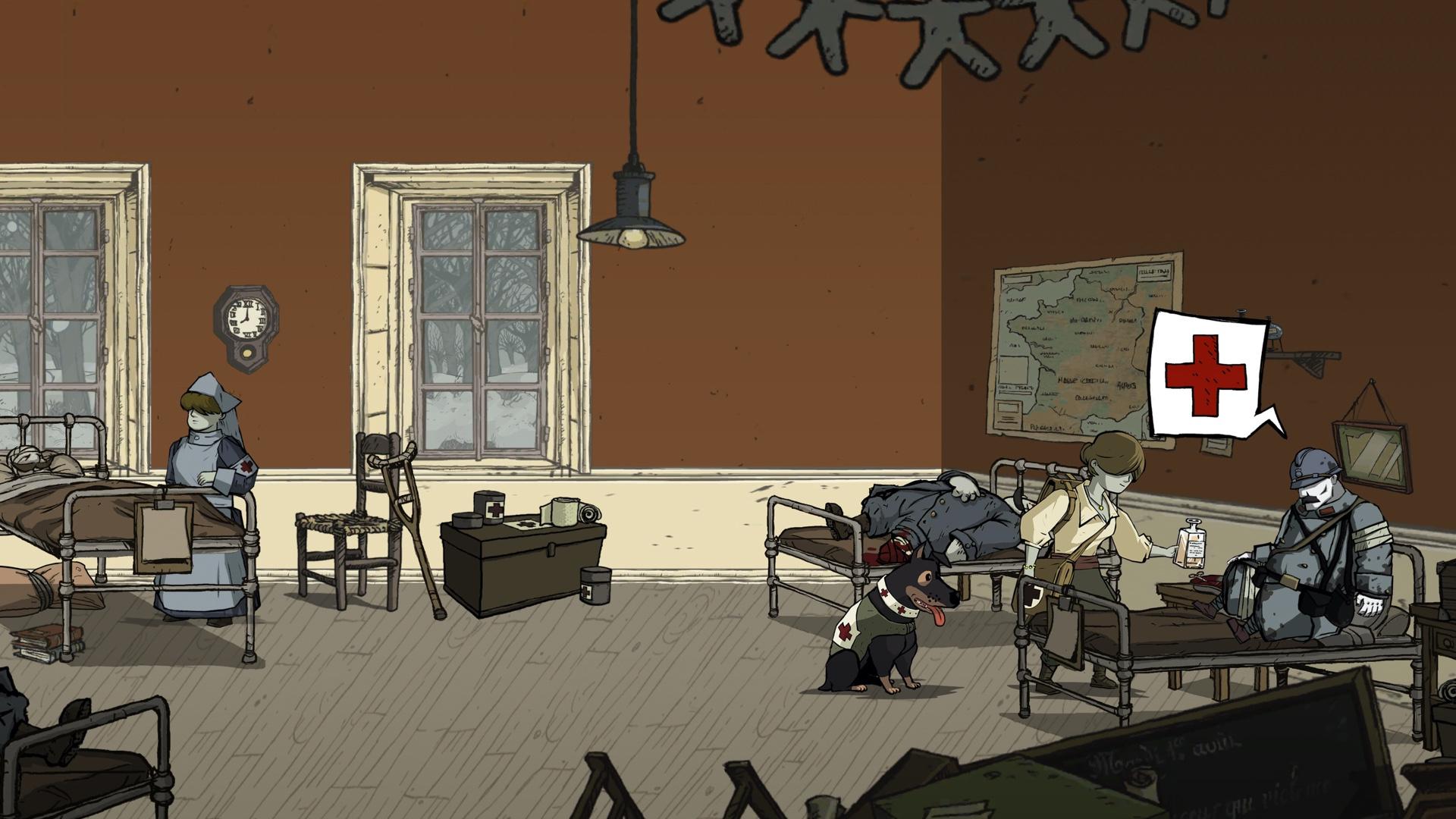
While still stuck with some of The Great War's presentational foibles, Montpellier (and co-developer Old Skull Games) builds upon the UbiArt Framework comic-book style in several ways. From both the comic panel cutscenes to its more intricate levels, the extra layer of detail to foregrounds and backgrounds is a noticeable improvement. Running past a hail of gunfire in the trenches or charging through billowy smoke captures that mood of all hell breaking loose. And yet, Coming Home is still stuck with a baseline that doesn't capture my aesthetic eye. Beauty is in the eye of the beholder of course, but there's something about these character models, their absent eyes buried beneath their brows (except for James), and their awkwardly-stiff animations that still doesn’t measure up to the wonderful expressiveness of other prominent indies in this price range ($15) nor the studio's own Rayman counterparts. Albeit improved, it's still an odd tonal fusion between the horrors of war and a Saturday morning cartoon.
Sound and music remain the most consistent staple. Beyond simply being an incredible military presence, The Harlem Hellfighters were also a musical force, introducing ragtime and jazz to Europe. While the brief QTE rhythm interludes feel mechanically unsatisfying and off-note, they're a pleasant buoy amid all of the destruction. James' clarinet high notes will transform to Jason Moran's dour piano keys whilst visions of soldiers' fatal ends are spliced into the frame. Maybe these tracks often play it too safe with expected source material, but they're still authentic in their intent.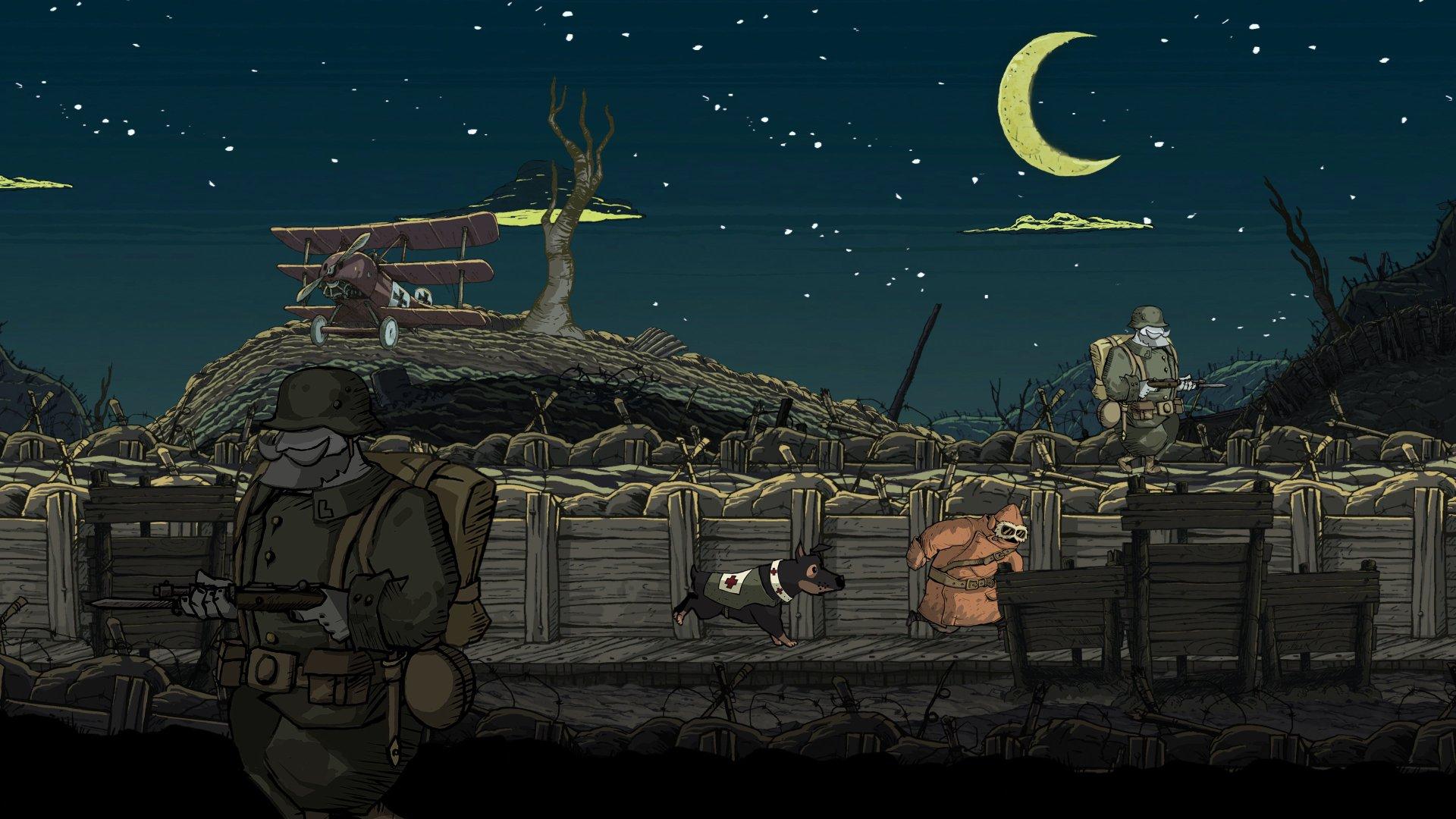
Sadly, "authentic" can rarely be used to describe the puzzles; to be fair, there's personality incorporated for some of the five starring characters. When George isn't distracted by barebones stealth or block puzzle segments, he's doing an endless runner in the sky (flying towards the screen) while listening to Beethoven's Fifth and avoiding telegraphed attacks. Nurse Anna flips between fetch quests with Walt and short medical mini-games. Repetitively succoring so many injured does marry with the travesties of war, but it also feels thematically confused to bake in these fail states. Why does all the shrapnel in a soldier's leg reset simply for being too slow in extracting them the first time?
Those kinds of desultory decisions aren't limited to minute details either. Here, the two general puzzle/action expectations are either rudimentary busywork or playing fast and loose with the game's logic. Most tools, especially cogs, stick out from the rest of the game's art; hell, sometimes you're literally given a Polaroid of what to pick up next. When not being specifically told what to do, most solutions can be whittled down to tossing a rock to drop down a ladder or moving a crate while wrestling with not-quite-polished controls. Only one or two brainteasers come to mind across an entire three-act, five-hour journey that reach the decent threshold in my book.
Although a few select qualities and mechanical tweaks from its predecessor do a better job of harmonizing mechanics with tone this time around, something's still missing compared to other vaunted examples of "anti-war war games." Even in the face of getting splattered by massive artillery, death is only treated like a minor setback before these gallant heroes ride back into battle; in fact, sometimes the design lends itself to you dying in order to learn a puzzle's rules. It's similar to the design ethos of Playdead's platformers, but without their context, atmosphere, visual language, and so on that punctuates the subtle horror of those Game Over screens. Better doesn't necessarily mean great.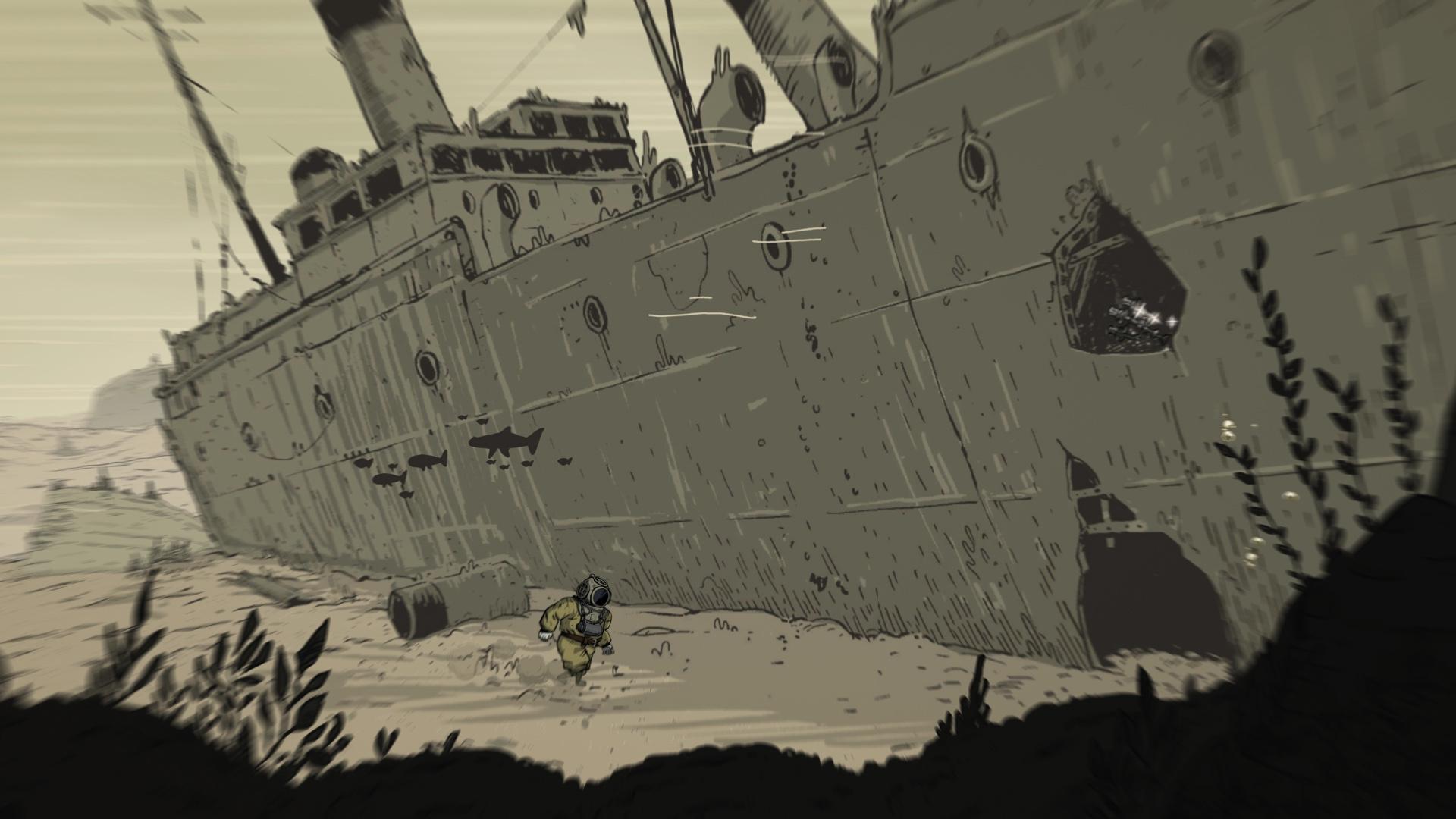
Coming Home is an unfortunate case of a sequel learning a few lessons from its predecessor, and yet realizing there's something more fundamentally at odds with itself. It avoids the bombastic excesses of the former's moustache-twirling villainy, and yet returning staples like cartoony gibberish, flat humor, and limited visual storytelling still create this odd tension with its wartime drama. While restraining itself of more wildly illogical puzzles, most are still stultifying for their generic fundamentals that lack any unique nuance or solid pacing. Its 'indie' identity captures a side of Ubisoft infrequently seen nowadays, yet still retains similar gameplay & storytelling contradictions found in its biggest sandboxes.
Contractor by trade and writer by hobby, Lee's obnoxious criticisms have found a way to be featured across several gaming sites: N4G, VGChartz, Gaming Nexus, DarkStation, and TechRaptor! He started gaming in the mid-90s and has had the privilege in playing many games across a plethora of platforms. Reader warning: each click given to his articles only helps to inflate his Texas-sized ego. Proceed with caution.
VGChartz Verdict
5.5
Acceptable
This review is based on a digital copy of Valiant Hearts: Coming Home for the XS

























